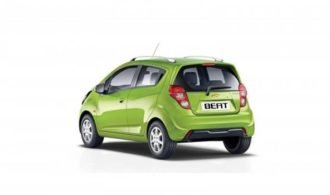Vehicle ownership is something many people look forward to, especially just after passing your driving test. But while it is a right of passage for many, is owning a vehicle outright the best option? With so many different purchase options available to you, is it more advantageous to lease a vehicle, take up a car finance option, or pay upfront in full? Here we look at some of the benefits and disadvantages of vehicle ownership.
Spread the Costs over the Long Term
One of the many benefits of taking out a car loan finance option is being able to spread out repayments. You could do this similarly with a bank loan or credit card, but if you do not have these available to you, getting the finance directly through the car retailer or lender is the best option. Depending on the value of the vehicle you’re looking to buy, paying outright for it could leave you short of cash in the short term and can also take a long time to save up. A car loan, if you’re approved, will make ownership more manageable to pay each month, lowering the costs so that you have more available to purchase other essentials such as car insurance and vehicle breakdown cover, as well as the vehicle running costs.
With Finance Comes Interest
You should check the total cost of the finance option you choose, as there will be interest included, the total payable will be more than the value of the car. If you buy outright, you can avoid any interest charges that come with a finance option, but there may be other fees applicable at point of sale. By reviewing the total cost of the vehicle you want, you can compare what the interest charge will be and decide whether you are happy to pay this to spread the costs. Whilst paying in full at the point of sale can be cheaper in the long run, for many it is more convenient to spread the costs through affordable repayments.
Additional Extras with Finance
Finance options such as PCP (Personal Contract Purchase), HP (Hire Purchase), or leasing can also come with added benefits, such as included coverage of maintenance costs, or even the option to return the car at the end of the contract to change for another. Owning the car outright would mean you would have to privately sell or part-exchange instead, so it’s worth considering if you are happy with doing so. With the added benefits, it does mean you may need to keep to a pre-agreed annual mileage limit and ensure there is no damage to the vehicle on its return.
Depending on what you can afford to do, paying outright for a vehicle or choosing affordable car finance both have their pros and cons. By taking a considered view of the options available and matching these to your current finances, you’ll be able to make the best choice for you.




